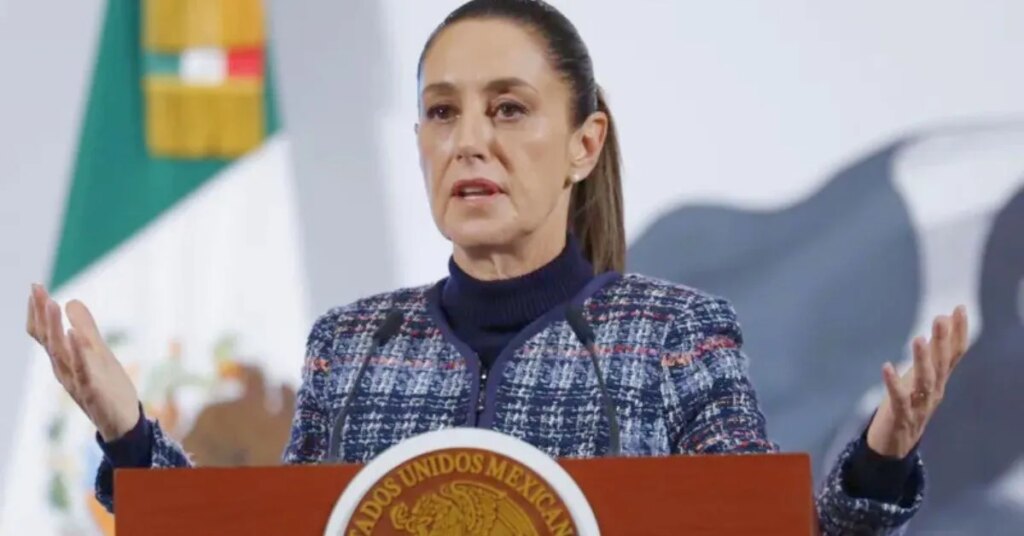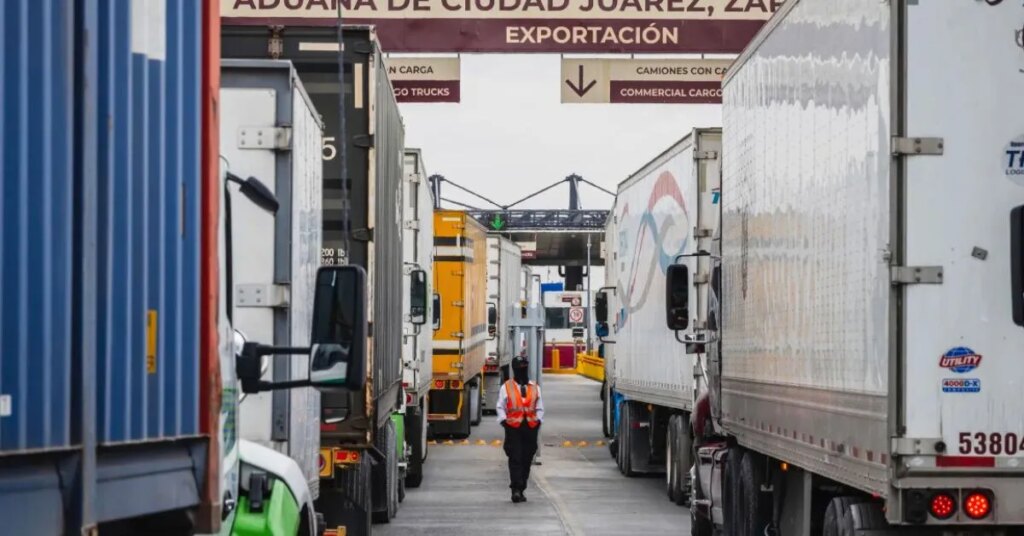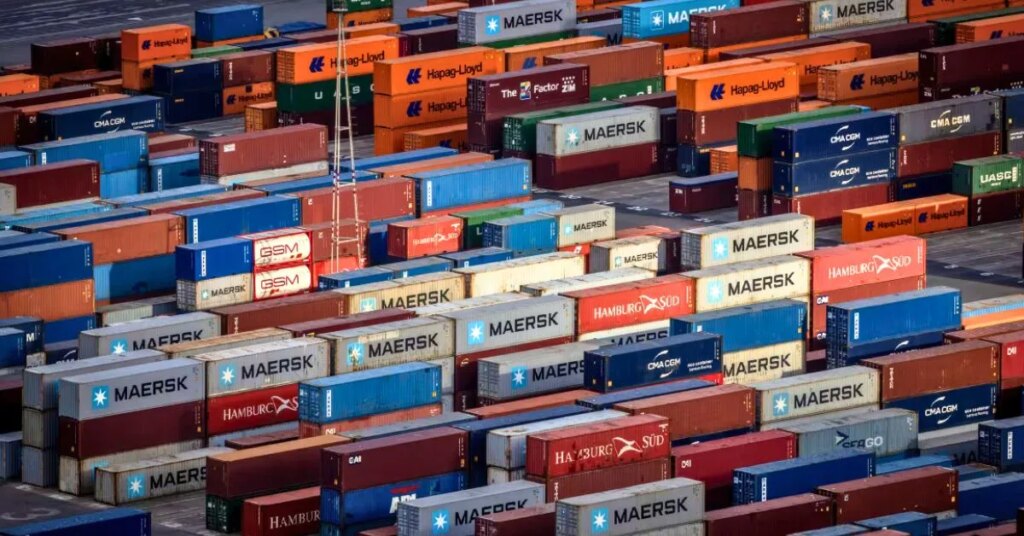Trump Proposes 30 Percent Tariff on Imports from Mexico and European Union
Former US President Donald Trump has announced that if elected in 2024 he will impose a 30 percent tariff on…
Former US President Donald Trump has announced that if elected in 2024 he will impose a 30 percent tariff on all imported goods. The plan aims to boost local production and reduce America’s trade gap but it has already triggered major criticism from international partners including the European Union and Mexico.
This announcement comes at a time when global economies are recovering from inflation energy shocks and climate events. Analysts warn that such a move could make products more expensive and start a new trade war.
European Union and Mexico Lead the Global Criticism
EU Warns of Trade Disruption and Legal Consequences
The European Commission said Trump’s plan could violate WTO rules and disrupt fair trade. Countries like Germany France and Italy could see fewer exports to the US especially in automobiles and agricultural goods.
A senior EU trade representative told Reuters that the proposal risks “undoing decades of trade progress”. The EU is now discussing countermeasures if Trump returns to power.

You can also read about how Pakistan and Bahrain are increasing their cooperation in counterterrorism during uncertain times like this.
Mexico Calls the Tariff Dangerous for Both Economies
Mexico strongly opposed Trump’s plan saying it would hurt USMCA trade relations. President Andrés Manuel López Obrador said this tariff could lead to job losses on both sides of the border and disrupt supply chains that feed industries like automotive and agriculture.
According to BBC, Mexican officials are preparing diplomatic channels to challenge the plan if implemented. The Mexican peso also saw a small dip following the announcement.

Middle East and Asia Monitoring the Situation
In the Middle East and South Asia, governments are watching closely. Gulf countries like the UAE and Bahrain worry about the rising cost of American tech and medical equipment. Meanwhile in India and Bangladesh textile exporters could lose access to the US market.
To see how political shifts are affecting South Asia too check out the movement led by Rahul Gandhi and Kanhaiya Kumar in Bihar.
Business Leaders and Economists Respond Strongly
Retail Groups Say Prices Will Rise for Americans
The National Retail Federation has warned that American families will pay more for basic goods like clothes phones and groceries. According to CNBC, the average household could see an increase of up to 2200 dollars per year in expenses.
This is especially concerning for low and middle-income families already struggling with rent fuel and healthcare.

Farmers and Exporters Fear Retaliation
US farmers especially in Texas Iowa and Ohio are worried that countries like Mexico China or Canada could respond with their own tariffs on American soybeans corn and beef.

Already hit by natural disasters like the Texas floods, these communities may face more financial hardship if global markets shut them out.
Could This Trigger Another Global Trade War
Experts at the Brookings Institution say that introducing such a broad tariff during a fragile global recovery could start a new trade war. If other nations retaliate prices would go up and global trade could slow down sharply.
According to a recent BBC economics report, this could increase inflation and even spark small recessions in countries heavily dependent on US trade.
Source: BBC
Trump’s Political Strategy Behind the Tariff
Trump is using this tariff proposal to present himself as a defender of American jobs and industries during the 2024 presidential campaign. His speeches focus on bringing factories back home and reducing dependence on foreign countries for essential goods.
However many economic experts say this is more of a campaign tactic than a serious long-term economic policy. The Biden administration has remained silent so far perhaps waiting for more public or international reaction before commenting.
This silence may signal political caution but critics argue voters deserve clear answers on trade policy before heading to the polls.
With global trade shifting rapidly, every statement from leaders can impact markets, investor confidence, and diplomatic ties around the world.
Trump’s controversial legacy from actions like the Israel Gaza ceasefire continues to influence how voters and foreign leaders view his decisions.
What This Means for the Global Economy
Financial markets across the world have already started reacting to Trump’s announcement. In the United States, the Dow Jones Industrial Average saw a slight dip while Asian markets like Japan’s Nikkei and Hong Kong’s Hang Seng remained flat but cautious. European stocks including the DAX in Germany and CAC 40 in France also dropped slightly amid fears of future trade restrictions.
The Mexican peso lost value, showing investor concern about how heavily Mexico depends on trade with the US. The euro also dipped, signaling that Europe’s exporters could face serious challenges if Trump returns to power and enacts the 30 percent import tax.
Economists say this kind of uncertainty hurts not just Wall Street but also local businesses in cities like Karachi Mumbai Lagos and Manila, where many jobs are tied to exporting textiles electronics or services to the US. If the tariff policy is passed, prices could rise worldwide, global supply chains could slow down, and small economies might suffer major setbacks.

Final Thoughts
Trump’s proposed 30 percent tariff has created a storm of reactions from world leaders economists business owners and voters. While his supporters believe it could bring back American jobs and factories, critics argue that this move could isolate the US and harm millions of people across different continents.
From Washington to Brussels to Mexico City, governments are calculating how this tariff could change future trade deals. At the same time, ordinary families are asking how it will affect their daily expenses — from groceries and clothing to school supplies and smartphones.
The plan also risks weakening America’s global influence. If traditional allies like the EU and Mexico feel targeted or disrespected, they may look to China Russia or regional pacts like BRICS for economic partnerships, leaving the US out of major trade conversations.
This proposed tariff is more than just a campaign talking point. It could reshape international alliances, redraw trade routes, and impact local jobs from Lahore to Los Angeles.
Stay connected with GloblNews.com for verified and timely updates on world events, economic shifts, and the 2024 US election campaign. Don’t miss powerful human stories like Kashmir’s contrast of beauty and brutality which remind us that policy decisions affect real lives on the ground — every single day.







ремонт телевизоров тошиба в москве сервисный ремонту телевизоров тошиба – профессиональный ремонт с гарантией качества.